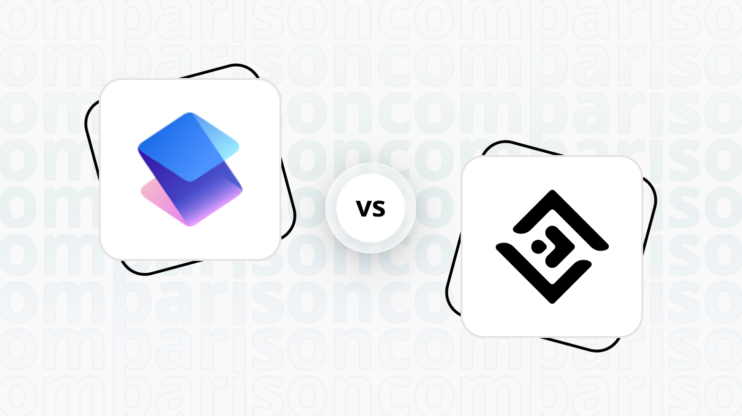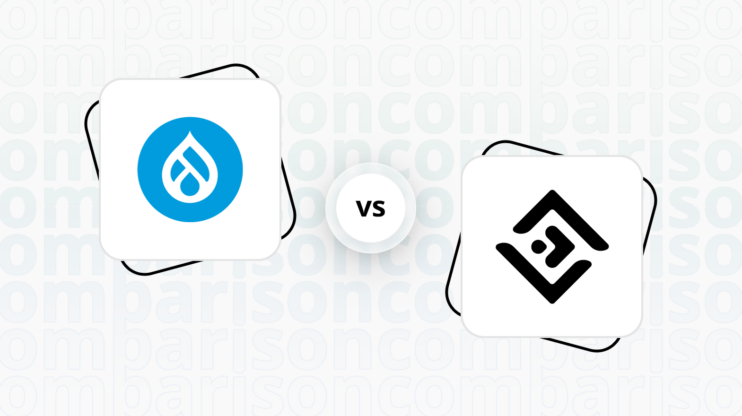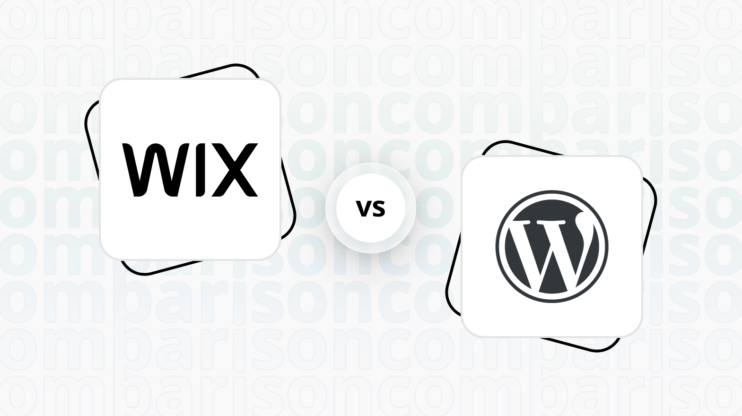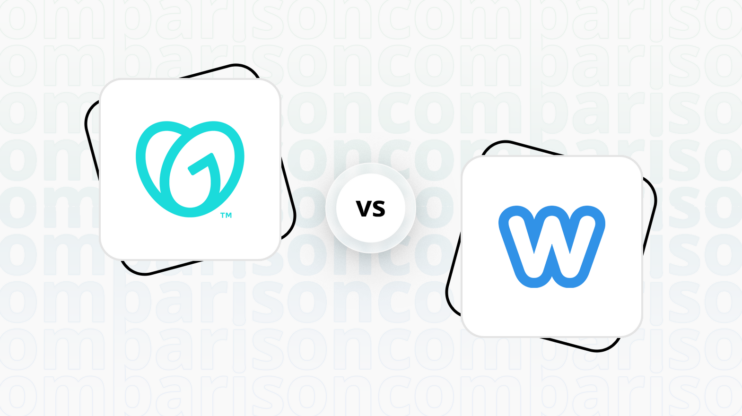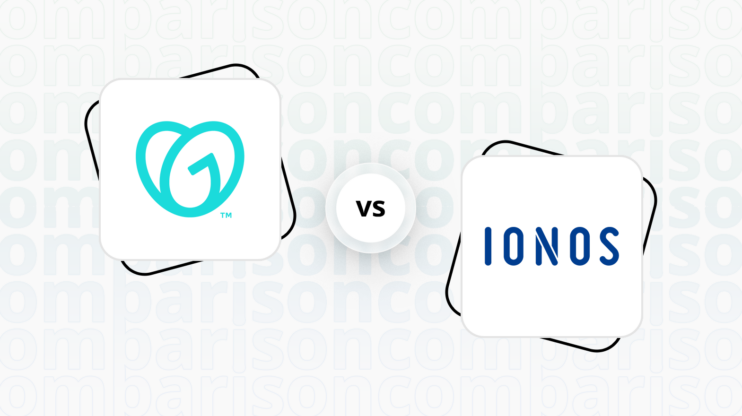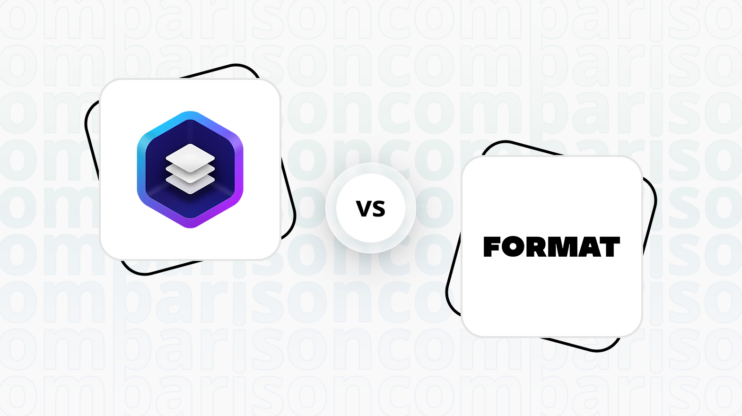Final verdict
Siter.io and Drupal cater to different user needs and preferences, with each platform having its unique strengths.
-
Siter.io (Overall Grade: 5.1/10)
excels in user-friendliness and design capabilities, making it an excellent choice for users without coding knowledge who prioritize ease of use and design flexibility. Its unique features, such as the drag-and-drop interface, freehand design tool, and Figma integration, cater to designers and users looking for a straightforward way to create and manage websites. However, it falls short in areas like ecommerce functionality, plugins and integrations, and customer support. -
Drupal (Overall Grade: 6.4/10)
stands out for its flexibility, security, and robust content management capabilities. It is a powerful choice for users who require a highly customizable and scalable platform. With its extensive range of modules and themes, Drupal is suitable for a variety of websites, from personal blogs to complex corporate sites. Despite its steeper learning curve, Drupal offers comprehensive learning resources and a supportive community, making it a viable option for users willing to invest time in learning the platform.

|

|
|
|---|---|---|
|
Design functionalities & templates |
7.5 |
7.8 |
|
Ease of use |
8.3 |
5.4 |
|
Ecommerce |
3.4 |
7.5 |
|
Website Editors |
7.8 |
7.5 |
|
Product testing options |
8.2 |
7.1 |
|
Price |
8.1 |
5.7 |
|
Hosting quality |
3.9 |
0 |
|
Website speed optimization |
1.5 |
6.4 |
|
Plugins and integrations |
5.5 |
8.6 |
|
Marketing features |
2.6 |
8.0 |
|
Customer support |
4.1 |
6.7 |
|
Security |
6.8 |
8.3 |
|
AI capabilities |
0.0 |
7.5 |
|
User Management |
7.1 |
9.1 |
| Overall |
5.1 |
6.4 |
Best for ecommerce
 3.4
3.4
 7.5
7.5
Verdict
: For users seeking advanced ecommerce capabilities, Drupal is the clear winner over Siter.io, offering a more robust and flexible platform for building complex online stores.
-
Siter.io
: While Siter.io shines with its unique design tools and ease of use for website creation, it offers only basic ecommerce functionalities. It’s best suited for users who prioritize design over advanced ecommerce features. -
Drupal
: Drupal excels with its comprehensive ecommerce solutions, supported by the Drupal Commerce module. It’s ideal for users requiring extensive customization, complex product management, and a wide range of payment options for their online store.
Best for informational & business websites
 7.2
7.2
 7.5
7.5
Verdict
: Drupal edges out Siter.io for informational and business websites, thanks to its superior flexibility, extensive customization options, and a slightly higher score in this category.
-
Siter.io
: Siter.io offers a user-friendly platform with unique design tools, making it accessible for users without coding knowledge. It’s well-suited for creating simple to moderately complex websites, with features like drag-and-drop editing and Figma integration enhancing the design process. However, its narrower focus and lower score in this category make it a less versatile choice compared to Drupal. -
Drupal
: Drupal’s open-source nature and higher score in this category make it the better choice for informational and business websites that require extensive customization and scalability. With a vast array of themes and modules, Drupal accommodates a wide range of website needs, from simple informational pages to complex business solutions. Its flexibility and the active community support further solidify its position as the preferred option for more demanding web projects.
Detailed comparison
Design functionalities & templates
Design FunctionalitiesRepresents how well each platform allows for creative design and customization of websites.Score Components:
- Template Variety (30%): Range and quality of design templates.
- Customization (30%): Flexibility and options for design alterations.
- User Interface (20%): Ease and intuitiveness of the design process.
- Responsiveness (10%): Adaptability to different devices and screen sizes.
- Innovation (10%): Unique design features and tools.
 7.5
7.5
 7.8
7.8
🏆
Winner: Drupal.
If you’re looking for a platform that offers more flexibility and a wide array of design features, Drupal is the preferred choice.
Siter.io includes a handful of customizable templates for various website types, such as landing pages, portfolios, and e-commerce sites, ensuring users can start with a solid foundation and tailor each site to their needs. However, the limited number of templates is compensated with a UI which is very similar to design tools like Figma and AdobeXD. Additionally Siter.io has built in Figma plugin, which helps to export Figma designs directly to Siter.io platform, and make changes and tweaks right on Siter.io.
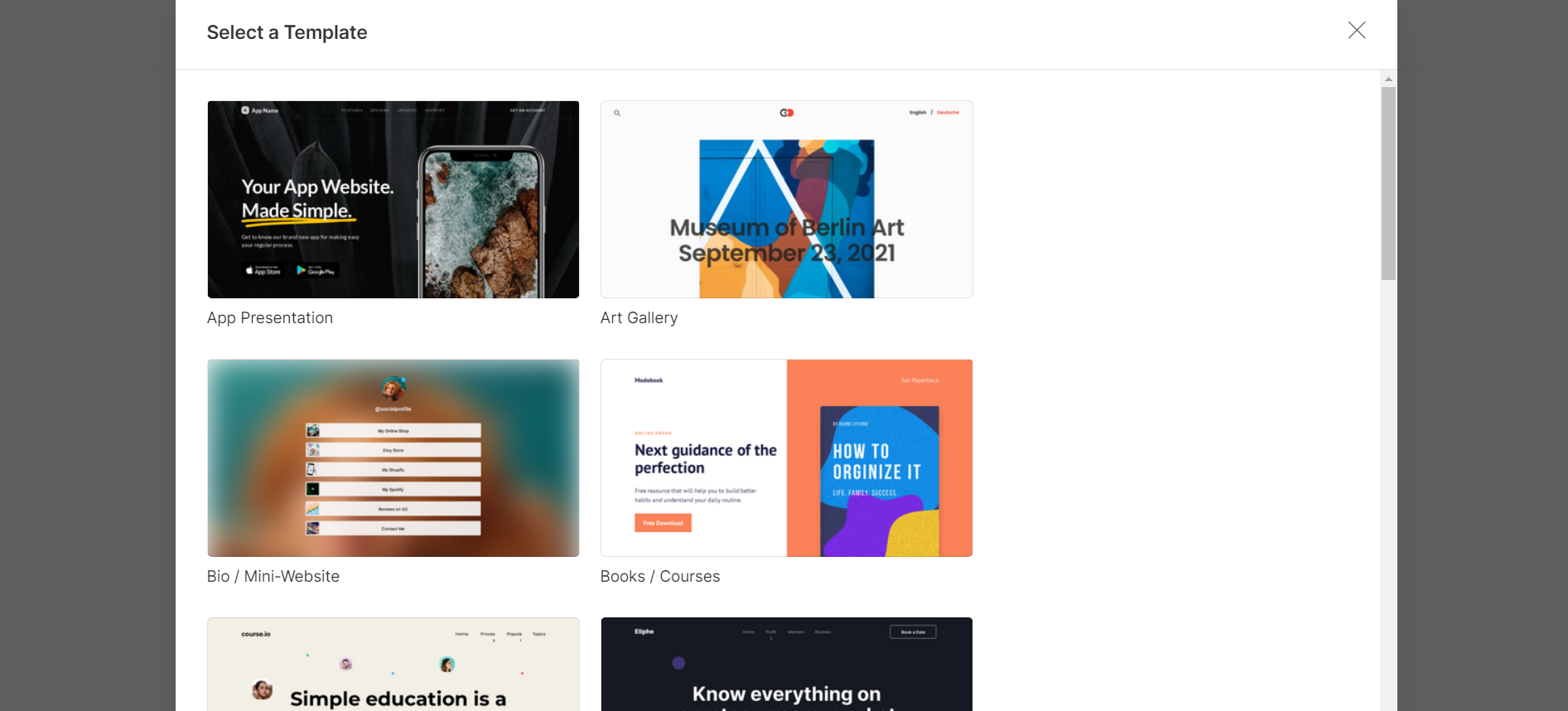

Compared to Siter.io, Drupal, as a highly flexible and powerful content management system, offers a vast array of templates and designs to cater to virtually any website need. With thousands of themes available, users can choose from minimalist designs, industry-specific layouts, and highly customizable multipurpose themes. These templates are designed to be responsive, ensuring that websites look great on any device. Moreover, the Drupal community continuously contributes new designs and templates, expanding the options for users to keep their websites modern and engaging.
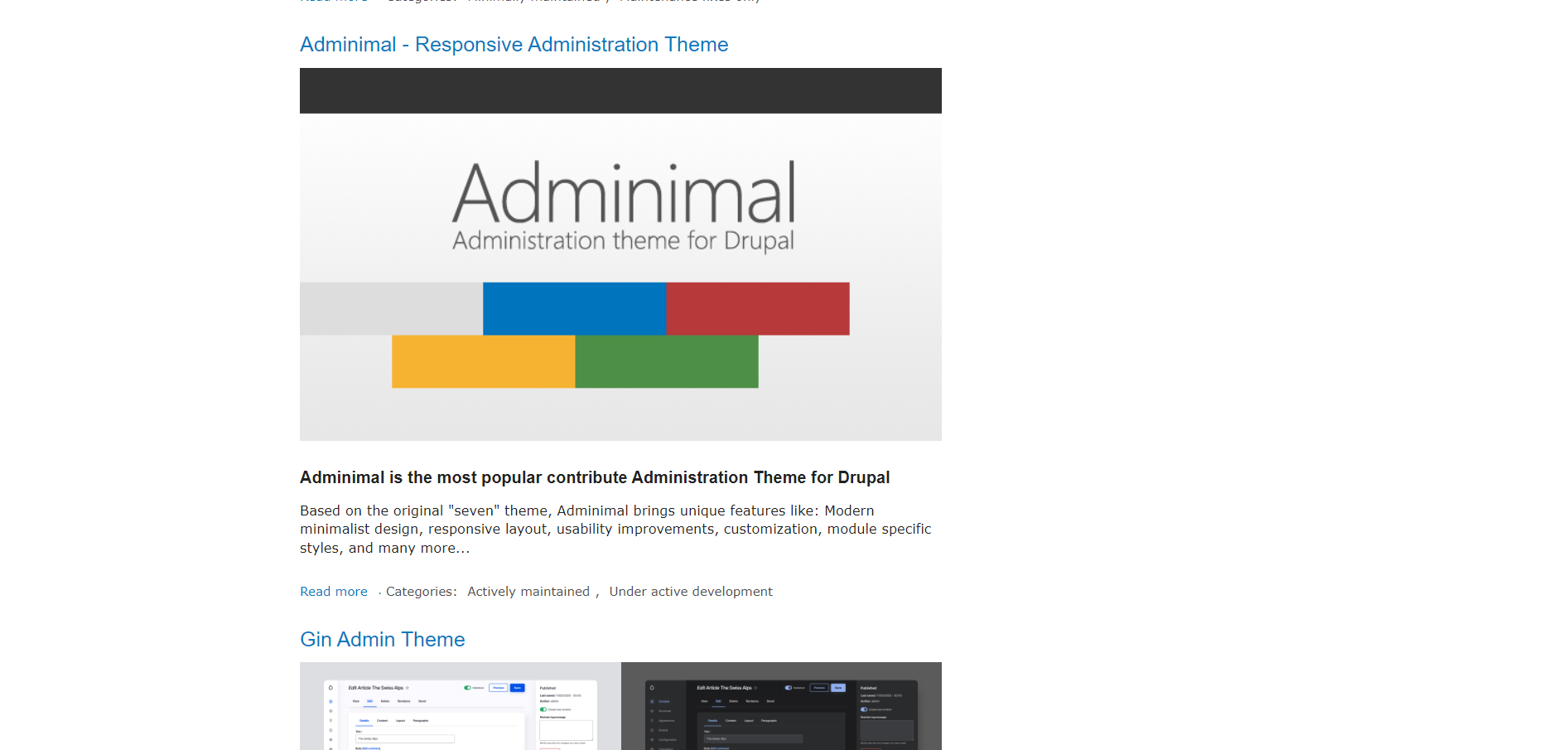
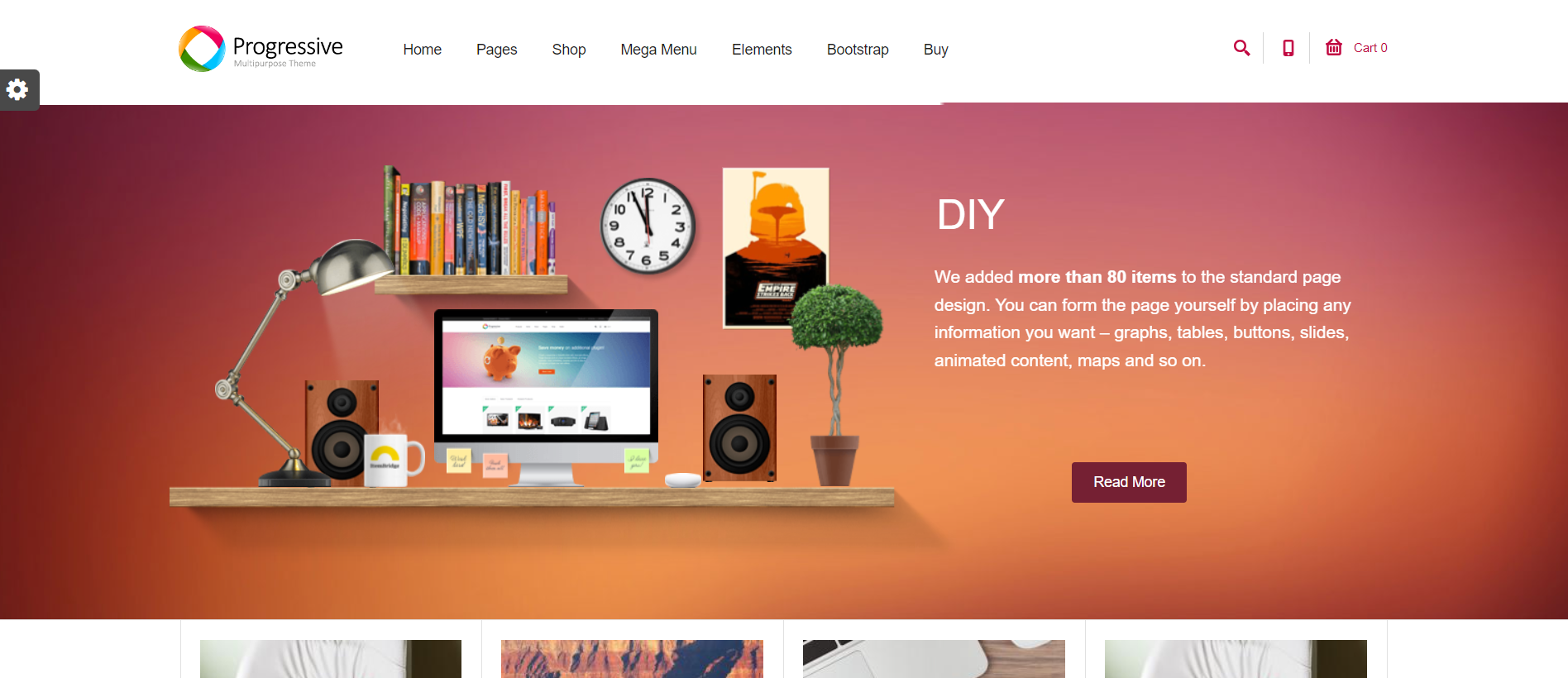
Get a head start on website creation with AI
Create a custom website tailored to your business needs 10X faster with 10Web AI Website Builder!
Ease of use
Ease of useReflects the platform’s overall user-friendliness.Score
Components:
- Learning curve (40%): Quickness and ease of getting started.
- Interface design (30%): Simplicity and intuitiveness of layout.
- User guidance (20%): Quality of tutorials and support.
- Flexibility (10%): Adaptability to various user skills.
 8.3
8.3
 5.4
5.4
🏆 Winner: Siter.io
. Scoring 8.3, Siter.io stands out for its user-friendly interface, making it exceptionally easy for beginners to create and manage their websites. Drupal, with a score of 5.4, offers a robust platform but with a steeper learning curve, especially for those new to web development. If ease of use is a priority, Siter.io is the clear winner in this category.
Learning Resources
🏆 Winner: Drupal
. While both platforms offer solid learning resources, Drupal goes a step further with its wide array of detailed tutorials and active community forums, making it easier for users to learn and adapt.
For ecommerce
EcommerceMeasures the platform’s effectiveness in supporting online business activities.Score Components:
- Ecommerce themes and templates (20%): Variety and design of templates.
- Product management (25%): Ease of managing and organizing products.
- Payment options (25%): Variety and convenience of payment methods.
- Ecommerce features (20%): Features for managing an ecommerce store.
- Integration (10%): Compatibility with external e-commerce tools and services.
 3.4
3.4
 7.5
7.5
When it comes to ecommerce, Drupal clearly outperforms Siter.io. Drupal, with its Drupal Commerce module, offers a flexible ecommerce solution that can be seamlessly integrated into its content management system. It provides a wide array of features including product management, shopping cart, payment gateway integration, and customizable workflows that cater to complex pricing models and product variations. On the other hand, Siter.io has very basic ecommerce features, as the platform is primarily focused on its UI design capabilities rather than ecommerce functionality.

|

|
|
|---|---|---|
|
Ecommerce themes and templates |
4.5 |
7.8 |
|
Product page customization |
6.5 |
8.3 |
|
Payment processing and commissions |
3.0 |
7.5 |
|
POS capabilities |
2.0 |
5.5 |
|
Payment gateways |
3.5 |
7.7 |
|
Product numbers |
2.5 |
7.0 |
|
Additional ecommerce features |
3.0 |
8.0 |
Siter.io ecommerce features:
- Shopping cart
- Checkout
- Purchase button
Drupal ecommerce features:
- Shopping Cart and Checkout Process
- Payment Gateway Integration
- Order Management and Invoicing
- Tax Calculation and VAT Support
- Shipping and Fulfillment
- Promotions and Discounts
- Reporting and Analytics
- Security and Compliance
Ecommerce themes & templates
Siter.io has only a few ecommerce specific templates, however its built-in Figma integration enables the use of a variety of third-party website templates designed in Figma to create a fully functional website directly on the platform. In contrast, Drupal offers a wide array of ecommerce themes designed to cater to different types of online stores, from clean and simple designs to more sophisticated and feature-rich options. These themes are built with responsiveness in mind, ensuring that stores function seamlessly across various devices.
Product page customization
Siter.io prioritizes its design capabilities, offering a wide range of customization options that are only limited by the user’s skill level. On the other hand, Drupal offers extensive customization possibilities for product pages through its modular architecture, allowing for detailed content types, flexible displays with Views, and theme customizations. The Drupal Commerce module enriches ecommerce functionalities, enabling tailored product management, checkout flows, and payment systems.
Payment processing
Siter.io primarily serves as a website design tool rather than a dedicated ecommerce platform. While it does allow for the creation of ecommerce websites, its functionality for integrating payment gateways is quite limited. However, it does support custom code injection, enabling users to integrate third-party payment widgets like PayPal or Stripe. Drupal, on the other hand, supports a wide range of payment gateways through third-party modules, including popular ones like PayPal, Stripe, and Authorize.Net. These modules enable seamless integration for ecommerce functionalities on Drupal sites.
Website Editors
Website EditorsEvaluates the platforms’ website building and editing capabilities.Score Components:
- Customization tools (40%): Range and power of editing features.
- Editor usability (30%): User experience within the editor.
- Design flexibility (20%): Freedom in layout and design changes.
- Update and maintenance ease (10%): Simplicity of updating and maintaining the site.
 7.8
7.8
 7.5
7.5
🏆
Winner: Siter.io
. Siter.io, with a score of 7.8, offers an editor designed to empower users with the ability to create websites seamlessly without any coding skills. It features an intuitive interface, real-time collaboration, and Figma integration, enhancing productivity and creativity for designers and teams. The editor supports inserting custom code for additional functionality, accessing thousands of free icons, and integrating with Unsplash for high-quality, royalty-free photos.

Drupal’s editor, scoring 7.5, offers a wide range of features tailored for content creation and management. It supports rich text editing, enabling users to format text, insert links, images, and media, as well as create tables and lists with ease. The editor is highly customizable, allowing administrators to configure toolbars and options according to the needs of their site. However, its steep learning curve can be a limitation for new users.
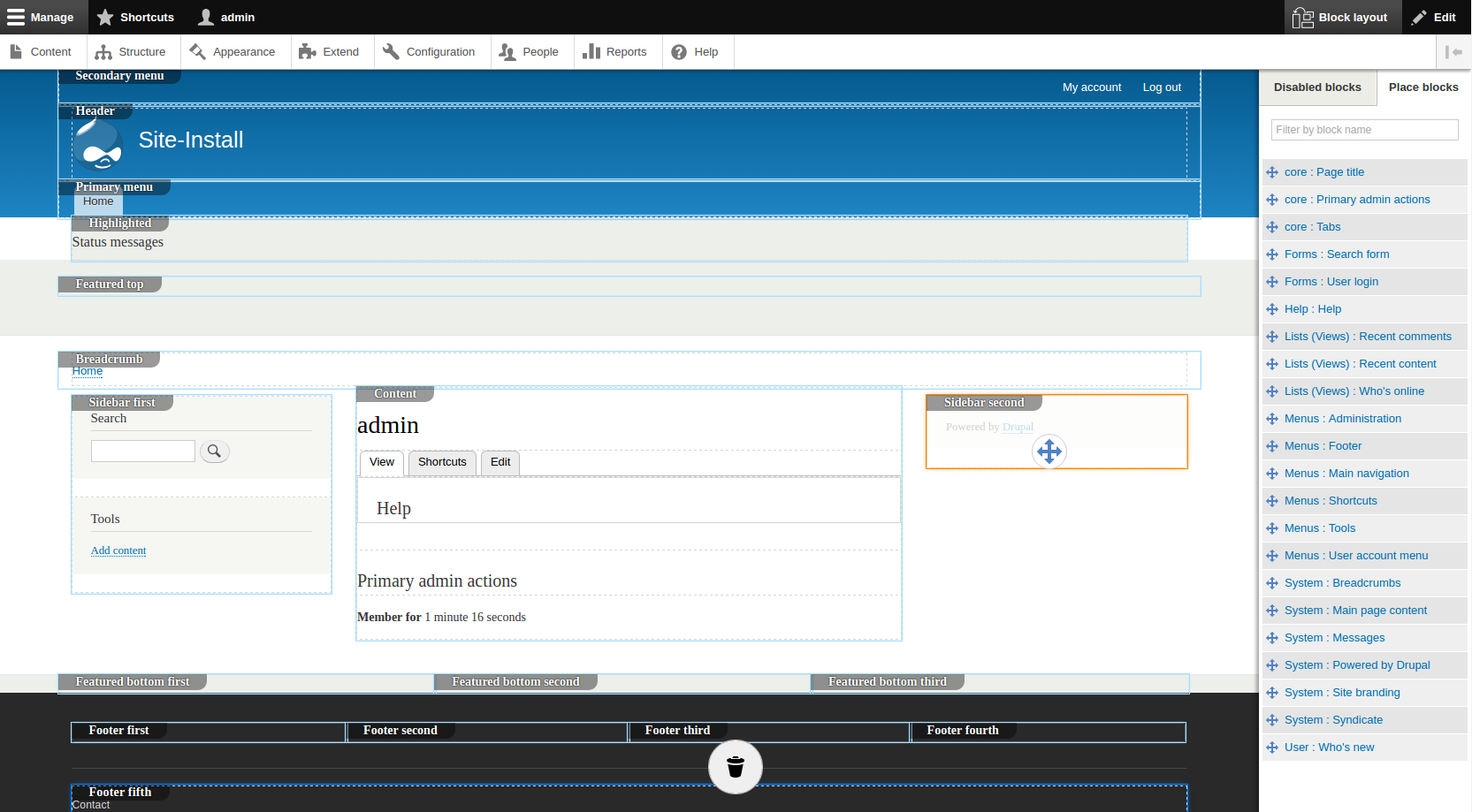
Mobile editor/app
 0
0
 0
0
🏆
Winner: None
. Neither Siter.io nor Drupal offers a dedicated mobile editor app. Both platforms focus on providing robust and flexible web editing tools on desktop platforms.
Siter.io’s editor is designed to empower users with the ability to create websites seamlessly without any coding skills. It features an intuitive interface, real-time collaboration, and Figma integration, enhancing productivity and creativity for designers and teams. However, the lack of a mobile editor app limits the ability to make changes on the go.
On the other hand, Drupal’s editor, commonly integrated through modules such as CKEditor, offers a wide range of features tailored for content creation and management. It supports rich text editing, enabling users to format text, insert links, images, and media, as well as create tables and lists with ease. The editor is highly customizable, allowing administrators to configure toolbars and options according to the needs of their site. However, like Siter.io, Drupal does not offer a mobile editor app, limiting its accessibility for mobile users.
In conclusion, while both platforms offer robust web editing tools, the lack of a dedicated mobile editor app is a significant limitation for users who prefer to manage their websites on the go.
Product testing options
Product Testing OptionsAssesses the options for trying out platform features before commitment.Score Components:
- Trial quality (40%): Extent and usefulness of the trial or free version.
- Feature accessibility (30%): How many features are available to test.
- Trial duration (20%): Length of the trial period.
- Ease of transition (10%): Smoothness of moving from trial to paid plans.
 8.2
8.2
 7.1
7.1
Overall Result
:
Siter.io Wins
. Siter.io scores 8.2 in product testing options, while Drupal scores 7.1. Siter.io offers a free version that allows users to test all premium features, while Drupal, being an open-source CMS, also offers a free version but does not provide the option to test premium features. Neither of the platforms offer a trial version or a money-back guarantee.

|

|
|
|---|---|---|
|
Free Plan |
Yes | Yes (open-source software) |
|
Trial Duration |
No | No |
|
Testing Premium Features |
Yes |
No |
|
Money Back Guarantee |
No | No (open-source software) |
Price
PriceLooks at the cost-effectiveness and value for money of each platform.Score Components:
- Plan value (40%): What each pricing tier offers.
- Transparency and clarity (30%): Clearness of pricing structures.
- Flexibility of plans (20%): Range of options to suit different budgets.
- Hidden costs (10%): Additional expenses not included in the plan.
 8.1
8.1
 5.7
5.7
Siter.io offers a range of pricing plans, while Drupal is free but requires separate purchases for domain, web hosting, and website builder subscriptions.

|

|
|
|---|---|---|
|
Free |
Start (Free/month): Includes unlimited teammates, up to 10 pages, 3 forms, Figma plugin, and SSL certificate. Additional websites are free, and SEO and page speed features are not included. Additionally, it’s not possible to publish any of the websites with the free plan. |
No offering at this amount. |
|
$0-$10 |
Solo ($8/month): For 1 website and includes 2 editors, up to 10 pages, 3 forms, Figma plugin, and SSL certificate. Additional editors cost $4 each. Value for price: 6.0 |
No offering at this amount. |
|
$10-$20 |
Plus ($14/month): Offers 3 websites with 4 editors, up to 50 pages, 5 forms, Figma plugin, and SSL certificate. Additional editors cost $6 each. Value for price: 7.5 |
No offering at this amount. |
|
$20+ |
Pro ($29/month): Provides 5 websites, 6 editors, unlimited pages, unlimited forms, Figma plugin, and SSL certificate. Additional websites cost $8 each. Value for price: 8.5 |
No offering at this amount. |
location. As a result in rare cases the prices displayed here can differ from the ones you see on their
websites.
Hosting quality
Hosting
qualityExamines the reliability and performance of the hosting solutions.Score Components:
- Uptime (40%): Consistency and reliability of website availability.
- Speed (30%): Loading times and performance.
- Bandwidth and storage (20%): Sufficiency of resources provided.
- Data centers (10%): Quality and distribution of hosting infrastructure.
 3.9
3.9
 0
0
🏆
Winner: Siter.io
Siter.io offers cloud-based hosting, but lacks transparency about its uptime and data centers. Drupal, being an open-source CMS, does not provide hosting services directly, and its hosting quality depends on the chosen hosting provider. Therefore, Siter.io has a higher hosting quality score.

|

|
|
|---|---|---|
|
Do they offer hosting? |
Yes |
No |
|
Type of hosting: |
Cloud based hosting |
Depends on hosting provider |
|
Uptime: |
Not disclosed |
Depends on hosting provider |
|
Uptime Guarantee: |
No |
Depends on hosting provider |
|
Data Centers: |
Not disclosed |
Depends on hosting provider |
Website Speed Optimization
Website Speed OptimizationEvaluates optimization of website loading timesScore Components:
- PageSpeed Score (30%): Google’s score indicating performance optimization.
- Loading Time (30%): The average time until a website is fully interactive.
- Mobile Optimization (15%): Optimization effectiveness for mobile devices.
- Resource Optimization (15%): Optimizing images, scripts, and other heavy resources.
- CDN Usage (10%): Use of CDN to enhance speed across geolocations.
 1.5
1.5
 6.4
6.4
🏆 Winner: Drupal
Both Siter.io and Drupal prioritize website performance and speed, but Drupal has a higher website speed optimization score.

|

|
|
|---|---|---|
|
Focus |
Mobile Responsiveness, SEO optimization |
Customizable speed optimization |
|
Performance Tools |
Not disclosed |
Various guides and tutorials |
|
Key Strategies |
Mobile Responsiveness, SEO optimization |
Users can optimize almost all aspects |
|
Load Times |
Not disclosed |
Varies depending on optimization |
|
Page Speed Scores Range |
Not disclosed |
Varies depending on website complexity |
|
Core Web Vitals Improvement |
Not disclosed |
Depends on users |
Drupal, an open-source CMS, offers numerous guides and tutorials on speed optimization, allowing users to optimize almost all aspects of their website. The load times and PageSpeed scores vary depending on the optimization and website complexity. The Core Web Vitals improvements depend on the users.
On the other hand, Siter.io, a website builder, focuses on mobile responsiveness and SEO optimization for speed optimization. However, it does not disclose any information about its performance tools, load times, PageSpeed scores, or Core Web Vital improvements.
Get a head start on website creation with AI
Create a custom website tailored to your business needs 10X faster with 10Web AI Website Builder!
Plugins and integrations
Plugins and integrationsMeasures the range and effectiveness of additional plugins and integrations.Score Components:
- Variety of options (40%): Range of available add-ons.
- Integration smoothness (30%): Ease of integrating plugins into the site.
- Quality of plugins (20%): Functionality and reliability of the options.
- Custom integration capabilities (10%): Support for custom or third-party integrations.
 5.5
5.5
 8.6
8.6
🏆 Winner: Drupal.
With a score of 8.6, Drupal outperforms Siter.io, which scores 5.5. Drupal’s open-source nature and extensive community support have resulted in a vast array of over 51,000 freely available modules. These modules extend Drupal’s capabilities beyond its core features, enabling functionalities like advanced SEO tools, e-commerce solutions, and custom content types and fields. Key integrations like Commerce for online stores, Views for content display management, and Google Analytics for web traffic analysis exemplify Drupal’s adaptability.
On the other hand, Siter.io offers limited integrations, primarily prioritizing its design capabilities. However, it does support custom code injection, allowing users to incorporate third-party plugins as needed. Its key integration is with Figma, enabling users to import website designs directly into the platform.
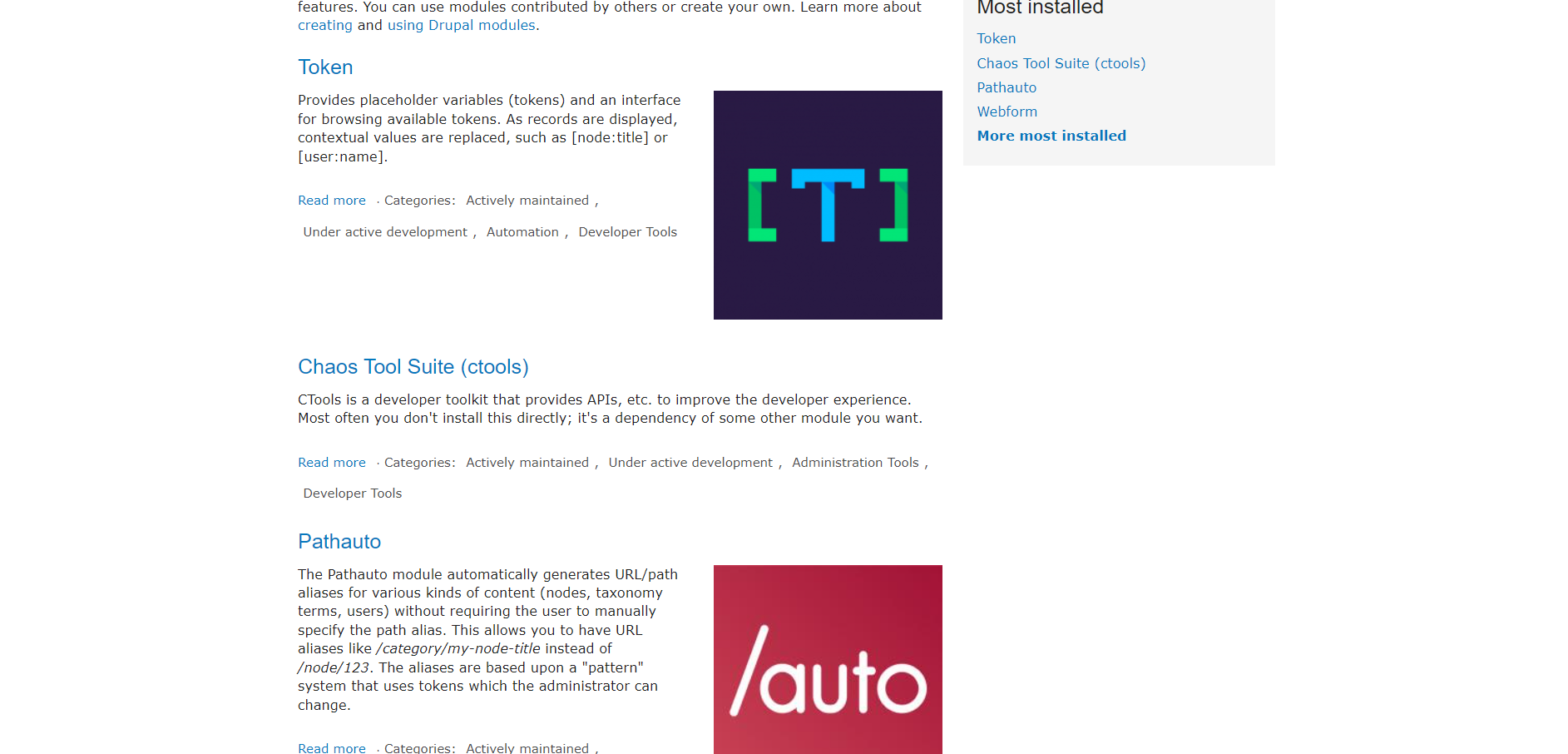
Marketing Features
Design FunctionalitiesRepresents how well each platform allows for creative design and customization of websites.Score Components:
- Template Variety (30%): Range and quality of design templates.
- Customization (30%): Flexibility and options for design alterations.
- User Interface (20%): Ease and intuitiveness of the design process.
- Responsiveness (10%): Adaptability to different devices and screen sizes.
- Innovation (10%): Unique design features and tools.
 2.6
2.6
 8.0
8.0
🏆
Overall Winner: Drupal
. Drupal stands out for its comprehensive SEO features, blogging capabilities, social media integrations, and robust analytics and reporting tools. Siter.io, while offering basic SEO and analytics features, lacks in email marketing and social media integration.

|

|
|
|---|---|---|
|
SEO Tools |
Basic SEO features | Comprehensive SEO features with modules like Yoast SEO |
|
Email Marketing |
No | Yes, with third-party extensions like MailChimp |
|
Blogging |
Possible to design a simple blog | Yes |
|
Social Media Integration |
No | Yes |
|
Analytics and Reporting |
Google analytics integration | Basic built-in features and Google Analytics integrations |
|
Ads and Promotions |
Facebook Pixel integration | Yes, with third-party extensions |
Customer Support
Customer supportEvaluates the quality and availability of support options.Score Components:
- Response time (40%): Speed of support responses.
- Support quality (30%): Effectiveness and helpfulness of the support.
- Availability (20%): Range of support channels (phone, chat, email).
- Resource richness (10%): Quality of self-help and educational materials.
 4.1
4.1
 6.7
6.7
🏆 Winner: Drupal
. With a customer support score of 6.7, Drupal outperforms Siter.io, which has a score of 4.1. Drupal offers a comprehensive range of customer support options, including a community support system through Drupal.org for forums and documentation, and professional 24/7 support services via providers like Drupal Connect with flexible “pay-as-you-go” plans.
On the other hand, Siter.io primarily assists customers through its extensive help center and articles. While email support is available, the platform doesn’t specify the days or hours of operation for customer support.
Security
SecurityLooks at the platforms’ security measures and data protection.Score Components:
- Data protection (40%): Safeguards for user and customer data.
- SSL and encryption (30%): Implementation of secure connections.
- Compliance (20%): Adherence to industry security standards.
- Regular updates (10%): Frequency of security updates and patches.
 6.8
6.8
 8.3
8.3
🏆
Winner: Drupal
. Drupal’s security measures are more comprehensive and robust compared to Siter.io. Drupal emphasizes website security through regular updates for both its core and contributed modules, alongside offering robust configuration options for enhanced protection. It includes built-in mechanisms for preventing common web vulnerabilities, such as data validation and sanitation to guard against SQL injection and XSS attacks. The platform supports advanced security features like two-factor authentication and provides extensive access control capabilities through user roles and permissions. Drupal’s proactive security approach is bolstered by a dedicated security team that continuously works on identifying and fixing vulnerabilities, alongside encouraging the use of automated security testing tools and secure coding practices.
On the other hand, Siter.io prioritizes user privacy by employing a zero-knowledge storage system. This ensures that your data is encrypted both in storage and during transfer, making it inaccessible even to Siter.io itself. To further safeguard your information, Siter.io utilizes multi-factor authentication and conducts regular security audits. However, Siter.io does not disclose any information regarding its security measures, apart from free SSL certificates.
AI Capabilities
AI capabilitiesMeasures the effectiveness of AI-driven features and tools.Score Components:
- Automation efficiency (40%): Impact of AI on streamlining processes.
- Personalization (30%): AI-driven customization for users or customers.
- AI-Assisted design (20%): Role of AI in website design and functionality.
- Data analysis (10%): Use of AI in interpreting user data and analytics.
 0.0
0.0
 7.5
7.5

|

|
|
|---|---|---|
|
Personalized Design |
|
|
|
SEO Optimization |
|
AI-driven recommendations for better search engine visibility |
|
Customer Behavior Analysis |
|
AI-powered chatbots for improved user interactions |
|
Sales Predictions |
|
|
|
Inventory Management |
|
|
|
Content Generation |
|
AI assistance in creating and optimizing site content |
🏆 Winner: Drupal
. Drupal, with a score of 7.5, integrates AI across various functionalities, enhancing e-commerce through chatbots, content creation, marketing automation, and cognitive services for improved user interactions. Features include natural language processing for interactive chatbots, automated content generation and SEO optimization, and cognitive services like emotion and facial recognition to enhance user experiences. These AI capabilities streamline operations and significantly enhance user engagement and satisfaction on Drupal-based platforms.
Siter.io, on the other hand, does not have any AI capabilities. This lack of AI features may limit the platform’s ability to provide personalized experiences and automate certain tasks.
User Management
User ManagementAssesses the platforms’ capabilities in managing user roles, permissions, and accessibility.Score Components:
- Role Customization (40%): Flexibility in creating and defining user roles and
permissions. - Ease of Management (30%): User interface and tools for managing users.
- Access Control (20%): Effectiveness of access control measures for different user
levels. - Scalability (10%): Ability to manage a growing number of users efficiently.
 7.1
7.1
 9.1
9.1
🏆 Winner: Drupal
. Both Siter.io and Drupal offer user management features, but Drupal’s flexible permission and role system allows for an unlimited number of users to manage and edit a website, only constrained by server capacity and practical management considerations.
- Siter.io focuses on its real-time collaborative features, offering varying numbers of editors depending on the plan. Each plan provides access for 2 to 6 editors who can edit and design websites, with the option to include additional editors for an extra fee.
- Drupal’s administrators can create various roles, such as “Editor” or “Administrator”, each with customized permissions. There’s no inherent limit in Drupal on the number of users with administrative or editing capabilities, enabling extensive collaboration and content management possibilities.
Drupal User Roles and Access Levels:
| Role | Description | Access Highlights |
|---|---|---|
| Editor | Users responsible for content creation, editing, and publishing. | Can create, edit, delete, and publish content; can also manage comments. |
| Moderator | Users focused on site moderation, including comment and user management. | Can approve or delete comments, block users, and manage reported content. |
| Administrator | Users with full access to all administrative features of the site. | Can change site configuration, manage all content, users, permissions, and install modules/themes. |
Additional Features

|

|
|
|---|---|---|
|
SSL Certificate |
|
|
|
Custom Domain |
|
|
|
Free Custom Domain Included |
|
|
|
International Domains |
|
|
|
Mobile Responsive |
|
|
|
Page Speed |
|
|
|
Website Builder Mobile App |
|
|
|
Convert a Website To An App |
|
|
|
Website Analytics |
|
|
|
Multilingual Sites |
|
|
|
Multiple Users |
|
|
User Feedback
Users of Siter.io generally appreciate its user-friendly interface and robust features, such as the drag-and-drop editor and customizable templates, which make website building accessible to teams without coding expertise. However, there’s a consensus that the platform could improve its integration options to enhance workflow efficiency further. Despite this, Siter.io effectively addresses the challenge of website creation without coding skills, benefiting designers, small business owners, and individuals seeking to establish an online presence or portfolio quickly and efficiently.
On the other hand, Drupal users appreciate its ease of use, security, and flexibility as an open-source CMS, highlighting its ability to scale and support a variety of websites and applications with modern technology tools. The community and documentation are frequently mentioned positives, providing ample support and resources. However, criticisms include a relative lack of plugins and themes compared to competitors like WordPress, the learning curve for customization without coding, and some challenges with installation and updates. Despite these criticisms, Drupal is praised for its robust content management capabilities, enabling users to manage content and user access efficiently. Overall, feedback underscores Drupal’s strength in creating secure, customizable, and scalable web solutions, despite some desires for a more intuitive UI and easier setup.
The making of this blog
We followed a clear, step-by-step process to write and research this article.
FAQ
Which platform is easier for beginners, Siter.io or Drupal?
Can I use both Siter.io and Drupal for ecommerce websites?
How do Siter.io and Drupal compare in terms of design flexibility?
What are the main differences in pricing between Siter.io and Drupal?
Which platform offers better customer support, Siter.io or Drupal?
In terms of security, which platform is more robust, Siter.io or Drupal?










